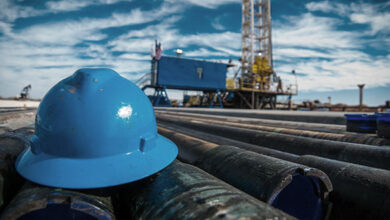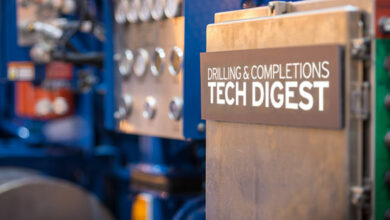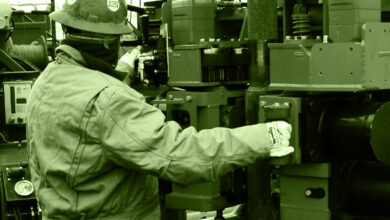Drilling & Completion Tech Digest
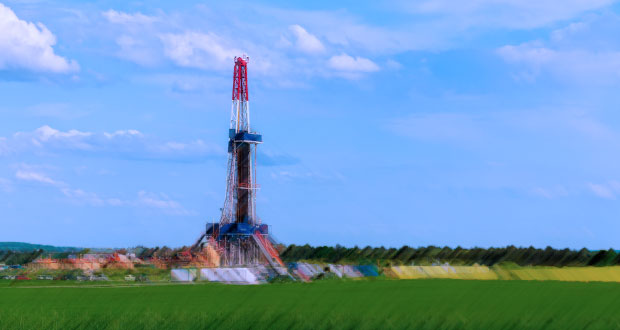
Coretrax system expands 27,000 ft of tubulars across 3 wells in Utica Basin
Coretrax has completed a record-breaking project in the Utica Basin for a major gas operator, using its ReLine Expandable Technology. The company deployed the ReLineMNS system across three wells and expanded a total of more than 27,000 ft of tubulars across the campaign.
With one of the expandable liners reaching 9,000 ft in its expansion, all installations broke the previously held record of 7,243 ft by at least 1,000 ft, according to Coretrax.
The total setting time from beginning expansion to exiting the top of the liner took nine hours per well over a total of seven days on location. Covering the well integrity issue with one full-length liner, the overall setting time was approximately 1,000 ft/hr.
Coretrax’s technology was deployed into each of the wells with a 4.25-in. outer diameter liner. On expansion of the liner, the post-expansion of the inner diameter was 4.1 in. with an internal pressure capability of well over 10,000 psi, covering the wellbore issues identified.
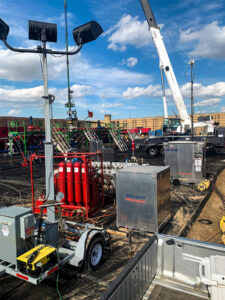
75.4 hours of continuous plug-and-perf pumping time achieved in DJ Basin
PDC Energy and Liberty announced in June their operational teams collectively achieved the milestone of 75.4-hours of continuous plug-and-perf pumping time in the DJ Basin in late January. The operations team completed 4,525 minutes of pumping time with zero nonproductive time.
Continuous plug-and-perf pumping offers multiple benefits, including reduced cost, lower environmental impact and less time spent on location. During the 75.4-hr period, PDC and Liberty completed 72 stages. This achievement resulted in 14% less time spent on location. Additionally, by eliminating idle time on location, greenhouse gas emissions were reduced by 8% compared with another 72-stage period of similar design.
During operations, the teams utilized the Intelligent Wellhead Systems inVision Technology Platform, a digital completion technology that introduces plant-style process control to the frac site using a combination of sensors and accumulator valve lockouts. This data-to-action system enables complex valve management processes for continuous frac operations to be performed safely, consistently and efficiently.
Subsea solutions enable milestone in cost savings, CO2 emissions reduction
DeltaTek Global recently announced that its subsea solutions have helped customers save more than 1,000 rig hours and 10,000 MT of net CO2 globally. SeaCure, QuikCure, CoreCure and SeaCureRS are allowing operators to eliminate various risks during well construction, as well as providing more than 70% reduction in wait-on-cement times. This, coupled with early compressive strength increases of 500%, results in low-risk drill outs, increased productivity and reduced CO2 emissions.
R&D project aims to find lower-cost options for downhole sampling, logging
Equinor and Applied Petroleum Technology (APT) are launching a project to replace costly downhole sampling and logging with more cost-efficient solutions. “How can we extract more relevant information that helps operators find and produce more oil and gas despite having access to fewer data sources? This is the challenge we aim to solve together with Equinor,” said Helge Nyrønning, CEO of APT.
The project will develop pragmatic solutions to extract required information from reduced data sets, including enabling operators to replace acquisition programs such as downhole fluid sampling, production logging or wireline logging with more robust and cost-efficient solutions.
The R&D project involves development and testing of analytical instrumentation, execution and verification of experimental technologies, and tool deployment and optimization. This workflow will allow APT and Equinor to answer fundamental questions related to whether the reservoir phase is oil or gas, the quality of the petroleum in the reservoir, and which zones are contributing to production.


